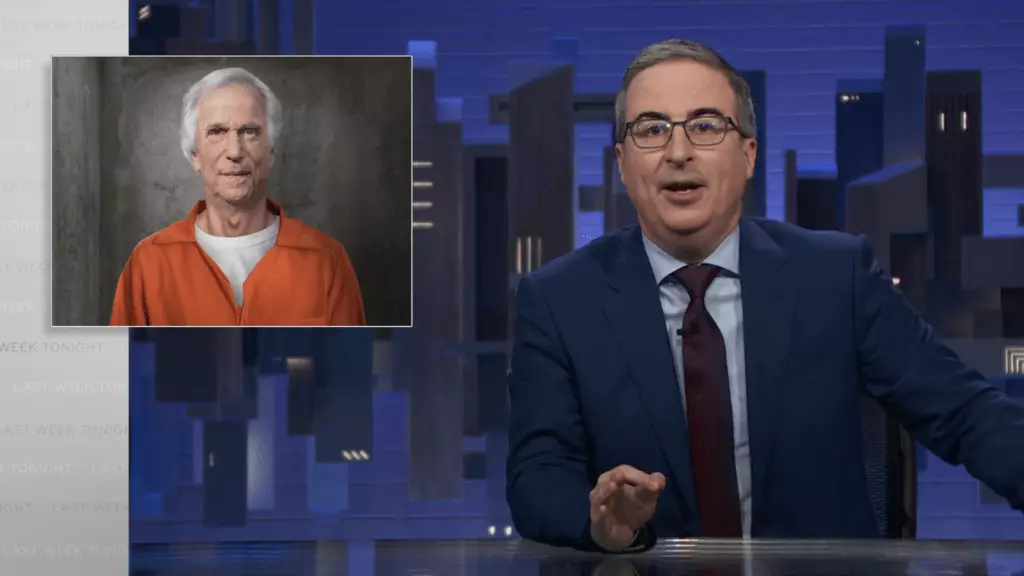In recent weeks, the controversial immigration policies of the Trump administration have reached new heights of absurdity. The reckless manner in which alleged criminals are being deported raises alarming questions about the integrity of due process in immigration law. The latest developments highlight cases where individuals, often with minor infractions, find themselves facing the full brunt of an unyielding deportation machine. Comedian John Oliver, known for his incisive commentary, humorously yet poignantly underscores the ridiculousness of these actions. His jest about the beloved actor Henry Winkler potentially being deported for trivial offenses encapsulates a very real fear that genuine citizens may become collateral damage in a war waged against immigration.
A Comedy that Reflects Dark Realities
Oliver’s recent segment on “Last Week Tonight” serves as both entertainment and a serious critique of an administration’s policies that verge on the nonsensical. For instance, one man was deported based solely on a criminal record that involved little more than minor traffic violations. It’s a far cry from the sensationalized image of criminals that has been portrayed in the media. The notion that a person could be targeted for deportation because of catching “one too many fish” adds a layer of irony that is as alarming as it is laughable. This absurdity should compel individuals to question the motivations behind such policies and the implications they have for justice and civil rights.
The Dangers of Demonizing the Undocumented
What’s particularly troubling is the administration’s tendency to frame these deportations as necessary actions against criminals, creating an environment ripe for targeting and scapegoating the most vulnerable. When the Trump administration spotlighted a Photoshopped image of an individual with gang tattoos to bolster its narrative on crime and immigration, it was a disservice to both the truth and to the individuals who become pawns in this narrative. This manipulation not only affects public perception but can also lead to dire consequences for those wrongfully accused.
Moreover, Oliver’s comedic take shines a light on a chilling reality: the profound fear that many individuals, including American citizens, may unpredictably face repercussions from flawed policies. Recent comments from Trump suggesting the creation of facilities for “homegrown criminals” abroad encapsulate an alarming notion of a government that seeks to expand its reach beyond its borders, endangering personal freedoms.
The Ethical Implications of Policy Abuse
The ethical ramifications of these immigration policies cannot be overstated. It is easy to dismiss such stories as mere political theater; however, the impacts are far-reaching and devastating for countless families. Oliver’s humor, carefully wrapped in sharp criticism, serves as a rallying cry for compassion and reason in a system that has become increasingly punitive and dehumanizing. When individuals like Winkler are suggested to be at risk, it highlights not just an attack on immigrants, but a broader threat to the values that should underpin justice and human rights in a democratic society.
As we navigate this complex landscape of immigration reform and policy enforcement, the need for vigilance against absurdities like this is more pressing than ever. Advocates for humane policy must elevate their voices against the tide of injustice that seems poised to engulf us all.

